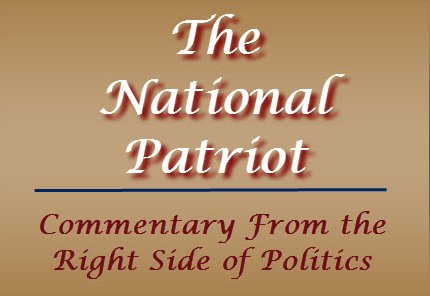 | U.S. Supreme Court Has Ruled on Obama’s Eligibility!!By Craig Andresen on November 13, 2011 at 5:23 pm |
 According to the United States Supreme Court, Obama is ineligible to be the President. That’s right, you read that correctly. The United States Supreme Court has ruled that Obama is ineligible to serve as President.
According to the United States Supreme Court, Obama is ineligible to be the President. That’s right, you read that correctly. The United States Supreme Court has ruled that Obama is ineligible to serve as President.It’s not that you haven’t been paying attention lately and yes, you can be excused for missing the ruling as it came down, not in the last few days but back in 1875.
This is the argument currently being made by the Liberty Legal Foundation.
The Liberty Legal Foundation has filed not 1 but 2 lawsuits, one in Arizona and the other in Tennessee neither of which have one single thing to do with Obama’s birth certificate OR challenging whether or not Obama was born in the United States.
There is no need for either in regard to these lawsuits.
At the core of this action is a simple request that Federal courts uphold the Supreme Court ruling. Both lawsuits, and the Liberty Legal Foundation promises there will be more, would render it impossible for the Democratic National Committee to place Obama’s name on the 2012 ballot.
Here’s the crux of it.
Back in 1875, the United States Supreme Court, in Minor v, Happersett, ruled that:

“Natural Born Citizen” was defined as children born of two U.S. citizens – regardless of the location of the birth. It found: “The Constitution does not, in words, say who shall be natural-born citizens. Resort must be had elsewhere to ascertain that. At common-law, with the nomenclature of which the framers of the Constitution were familiar, it was never doubted that all children born in a country of parents who were its citizens became themselves, upon their birth, citizens also.”
Obama’s problem, by his own admission and records of the State Department is this:
Obama’s father was not a United States citizen.
Therefore, via Minor v, Happersett and the United States Supreme Court in 1875, Obama is ineligible because, since his father was not a U.S. citizen, Obama is not a natural born citizen.
For a person to run, as his or her party’s nominee for President, the party must issue certification that the person named is eligible under the United States Constitution to become President. Read the rest on:


The Minor v Happersett ruling DID NOT say that a Natural Born Citizen requires two citizen parents. If it had, Edwin Meese, Ronald Reagan's attorney general, would not have written:
ReplyDelete“Under the longstanding English common-law principle of jus soli, persons born within the territory of the sovereign (other than children of enemy aliens or foreign diplomats) are citizens from birth. Thus, those persons born within the United States are "natural born citizens" and eligible to be President...."---- Edwin Meese, et al, THE HERITAGE GUIDE TO THE CONSTITUTION (2005) [Edwin Meese was Ronald Reagan’s attorney general, and the Heritage Foundation is a well-known Conservative organization.]
Respectfully Edwin Meese on is wrong on this point. He concludes that citizen is the same as natural born citizen based on a general "common law principle" ignoring Supreme Court precedent on the matter. Natural-born citizen was defined by the Supreme Court in 1875 as a person born in the U.S. with BOTH parents being U.S. citizens at the time of the NBC’s birth. Either or both of the parents can be naturalized, but both must be citizens at the time of the child’s birth for the child to be a “natural-born citizen.” You see that “citizen” and “natural-born citizen” are different terms with different legal meanings. This distinction almost never comes up because all citizens, natural-born, naturalized, and native-born have exactly the same rights as all other citizens, with only one exception: ONLY natural-born citizens can be President of the U.S.
ReplyDeleteMinor v. Happersett decided whether or not women had a Constitutional right to vote. In order to decide that question the Court had to first decide whether women were citizens, which they did. It then determines that Minor is a citizen, and that the court didn’t need to determine what type of citizen Minor was because every type of citizen might have the right to vote.
During the first part of the Court’s analysis it DOES define natural-born citizen as a starting point. In this section the Court also discusses different categories within the broader term “citizen.”
“At common-law, with the nomenclature of which the framers of the Constitution were familiar, it was never doubted that all children born in a country of parents who were its citizens became themselves, upon their birth, citizens also. These were natives, or natural-born citizens, as distinguished from aliens or foreigners.”
In other words: It was never doubted that natural-born citizens are children born in a country of parents who were its citizens. The definitions of OTHER categories of citizens (not natural-born citizens) have been debated. This is clear when reading the entire paragraph in the context of what the Court is attempting to decide.
The Court then discusses the much broader term citizens, including all other sub-categories of citizens. “Some authorities go further and include as citizens children born within the jurisdiction without reference to the citizenship of their parents. As to this class there have been doubts, but never as to the first.”
It is clear that the Court is stating that there has never been a doubt as to the definition of natural-born citizen, but there has been some debate about what categories of other people should be included in the broader term citizen. Because Minor fell within the definition of natural-born citizen, she was clearly a citizen. The court then moved on to whether female citizens could vote. That is why it said “For the purposes of this case it is not necessary to solve these doubts.” It was simply explaining that for the purposes of that case it didn’t need to resolve what other categories of people were also citizens because Minor was a natural born citizen. Which it had clearly defined.
Liberty Legal Foundation
Re: “Edwin Meese based his analysis on the "common-law principle", not on the Supreme Court precedent. “
ReplyDeleteThe Wong Kim Ark case is the precedent, and it clearly says that EVERY child born in the USA except for the children of foreign diplomats is Natural Born. Obviously a US Citizen who fulfills the criteria of Natural Birth is a Natural Born Citizen, which is what Meese wrote.
Re: “He fails to discuss the citizenship of the parents. “
Answer. There's a good reason. It is because the citizenship of the parents has no effect on the Natural Born Citizen status of a child born in the USA (other than the children of foreign diplomats). Only the place has effect. Here is an example of how Natural Born Citizen was used in 1803, shortly after the Constitution was written:
"Prior to the adoption of the constitution, the people inhabiting the different states might be divided into two classes: natural born citizens, or those born within the state, and aliens, or such as were born out of it. The first, by their birth-right, became entitled to all the privileges of citizens; the second, were entitled to none, but such as were held out and given by the laws of the respective states prior to their emigration. ...St. George Tucker, BLACKSTONE'S COMMENTARIES: WITH NOTES OF REFERENCE TO THE CONSTITUTION AND LAWS OF THE FEDERAL GOVERNMENT OF THE UNITED STATES AND THE COMMONWEALTH OF VIRGINIA. (1803)
As you can see, that refers only to the place of birth. Natural Born Citizens were “those born within a state.”
Re: “He fails to show the legal distinction between "citizens" and "natural born citizens".
Answer the difference is that in the broad category of citizens there are two, and only two, sub categories, naturalized citizens and Natural Born Citizens. Naturalized citizens, who of course were not born in the USA, are not eligible. Natural Born Citizens, who were born in the USA are eligible. A Natural Born Citizen is a US citizen who fulfills the Natural Born criterion, birth in the USA.
Re: “The Framers were very concerned that we never have a President who grew up under parents with divided loyalties, thus dividing the loyalties of the son.”
Answer: Yes, they were concerned. However, they DID not say that they considered (and hence there is no evidence that they considered) that a US-born child of foreign parents would have less loyalty to the USA than the US-born child of US parents.
They were concerned about foreigners becoming president, and hence they barred them (to be a Natural Born Citizen, you must be a US citizen). And they were concerned about naturalized citizens becoming president, and hence barred them too. They specified that only Natural Born Citizens can become president.
But they did not bar the US-born children of foreigners from becoming president. IF they had wanted to, they could have said it, but they didn’ say it----not in the US Constitution, nor in the Federalist Papers, not in anything else.
Re: "Natural-born citizen was defined by the Supreme Court in 1875 as a person born in the U.S. with BOTH parents being U.S. citizens at the time of the NBC’s birth."
ReplyDeleteThe above statement is complete crap. Here are the actual words of the Minor v. Happersett decision, which you are referring to:
"The Constitution does not, in words, say who shall be natural-born citizens. Resort must be had elsewhere to ascertain that. At common-law, with the nomenclature of which the framers of the Constitution were familiar, it was never doubted that all children born in a country of parents who were its citizens became themselves, upon their birth, citizens also. These were natives, or natural-born citizens, as distinguished from aliens or foreigners. Some authorities go further and include as citizens children born within the jurisdiction without reference to the citizenship of their [p168] parents. As to this class there have been doubts, but never as to the first. For the purposes of this case it is not necessary to solve these doubts."
Look closely at the quotation. It says that it was never doubted that if you were both born in the country and had two citizen parents you were a Natural Born Citizen. But it also said that there were some who believed that you were a Natural Born Citizen without reference to their parents. And then it says that it is not necessary to solve these doubts.
THAT is not a decision. If you say, "lots of people think X but some people think Y" and we do not have to solve the doubts" that is NOT a decision. It is a decision not to decide.
Subsequent to the Minor v. Happersett decision, the US Supreme Court did decide, in the Wong Kim Ark case, that every child born in the USA (except for the children of foreign diplomats) is Natural Born. A person who is both a US citizen and Natural Born is, of course, a Natural Born US Citizen.